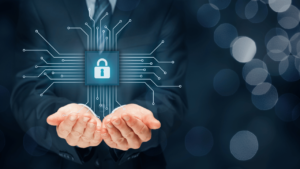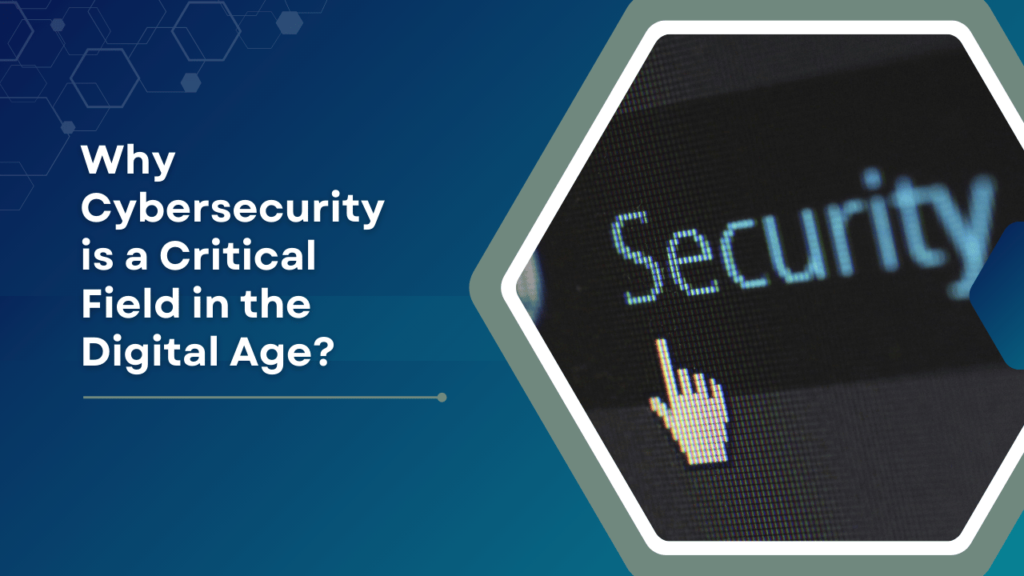How safe is your personal information online? We rely on technology daily for work, communication, and shopping. But this convenience comes with risks. Hackers are always looking for ways to steal data and disrupt systems.
Cybersecurity protects us from these threats, keeping our information safe and systems secure. It affects everything from social media accounts to company networks.
In this blog, we will explore why cybersecurity is essential in today’s world.
The Rise of Cyber Threats
As technology has advanced, so have the dangers that come with it. In the past, cyberattacks were rare. Now, they happen every day. Cybercriminals can hack into personal accounts, steal money, and even take down entire networks. These threats affect everyone — individuals, small businesses, and large organizations. The more we use technology, the more opportunities there are for cyberattacks.
Cyber threats also come in many forms. Phishing emails, malware, ransomware, and data breaches are just a few examples. Some attacks are quick and obvious, while others are hidden and take months to detect. The damage can be serious, including financial loss, identity theft, and even threats to national security. This constant risk shows why cybersecurity is a critical field today.
Growing Demand for Cybersecurity Professionals
As cyber threats increase, the need for trained cybersecurity experts grows. Businesses, hospitals, schools, and government agencies all need people who can protect their systems. Cybersecurity jobs are in high demand, and this trend isn’t slowing down. More companies are looking for professionals who understand how to prevent, detect, and respond to cyberattacks.
Pursuing an online MS in cybersecurity can be a great way to enter this field or advance your career. Online programs allow students to learn from anywhere, making it easier to balance school with work and life. As more people recognize the importance of cybersecurity, these programs are helping to fill the gap in skilled professionals. This means better protection for our digital world.
The Consequences of Weak Security
When organizations fail to protect their systems, they can suffer massive data breaches. These breaches can leak personal information like credit card numbers, addresses, and social security numbers. For companies, a breach can lead to financial losses and damage to their reputation.
Individuals also face risks. If your personal information is stolen, you may become a victim of identity theft. Recovering from this can be stressful and time-consuming. For governments, weak cybersecurity can even affect national security. Cyberattacks on infrastructure, like power grids or water supplies, can cause chaos and harm many people. This is why strong cybersecurity is essential for everyone.
Cybersecurity in Our Daily Lives
Cybersecurity isn’t just for tech experts or large companies. It plays a role in our everyday lives. Think about the apps you use, the smart devices in your home, or your online banking account. All these things rely on secure systems to work safely.
Every time you create a strong password or use two-factor authentication, you’re practicing cybersecurity. When you avoid clicking on suspicious links, you’re protecting yourself from cyber threats. These small actions matter. They help protect your personal information and keep your online accounts secure. In a world where digital interactions are common, basic cybersecurity knowledge is important for everyone.
How Cybersecurity Protects Businesses

Businesses rely on technology to function. From storing customer data to processing payments, almost every part of a business is connected to the internet. This makes businesses common targets for cyberattacks. If a company’s data is stolen or their systems are shut down, it can lose money and customers.
Strong measures helps businesses stay safe and operate smoothly. It involves using secure systems, training employees, and having plans in place for responding to attacks. When businesses invest in cybersecurity, they protect their reputation and their customers. This also helps build trust, which is key to long-term success.
The Impact of Remote Work
Remote work has changed the way we think about cybersecurity. More people are working from home, using personal devices and home networks to connect to company systems. This creates new risks. Home networks are often less secure than office networks, making it easier for hackers to access sensitive information.
Companies now need to focus on securing remote work environments. This means providing secure tools, training employees, and monitoring for threats. For employees, understanding basic cybersecurity practices is more important than ever. Keeping personal devices secure helps protect both individual and company data.
Cybersecurity and Emerging Technologies
New technologies bring new opportunities, but they also bring new risks. Artificial intelligence, the Internet of Things (IoT), and cloud computing are changing the way we live and work. While these technologies offer many benefits, they also create more ways for hackers to attack.
Cybersecurity must keep up with these changes. Experts need to understand how these new technologies work and how to protect them. For example, IoT devices like smart thermostats and security cameras can be hacked if not properly secured. As technology evolves, cybersecurity will continue to be a critical part of our lives.
Cybersecurity and Privacy
Privacy is a big concern in the digital age. People want to know that their personal information is safe. Cybersecurity helps protect privacy by keeping data secure. This includes everything from medical records to online conversations.
Companies have a responsibility to protect customer data. Laws and regulations also play a role in making sure businesses follow good security practices. When cybersecurity is strong, people can use digital services with confidence, knowing their information is safe.
Preparing for the Future
Cyber threats are not going away. In fact, they are likely to become more advanced and harder to detect. This makes cybersecurity a field that will continue to grow. The need for skilled professionals, advanced tools, and strong security practices will only increase.
Investing in cybersecurity now helps prepare us for the future. Whether through education, better technology, or everyday actions, we can all play a role in protecting our digital world. By understanding the importance of cybersecurity, we can help create a safer and more secure future.
The bottom line? Cybersecurity affects us all. As we become more connected, the risks grow, but so do the opportunities to protect ourselves. Choosing to learn more, whether for personal safety or a career, is a step toward a more secure world. In this digital age, staying safe online is not just important — it’s necessary.



